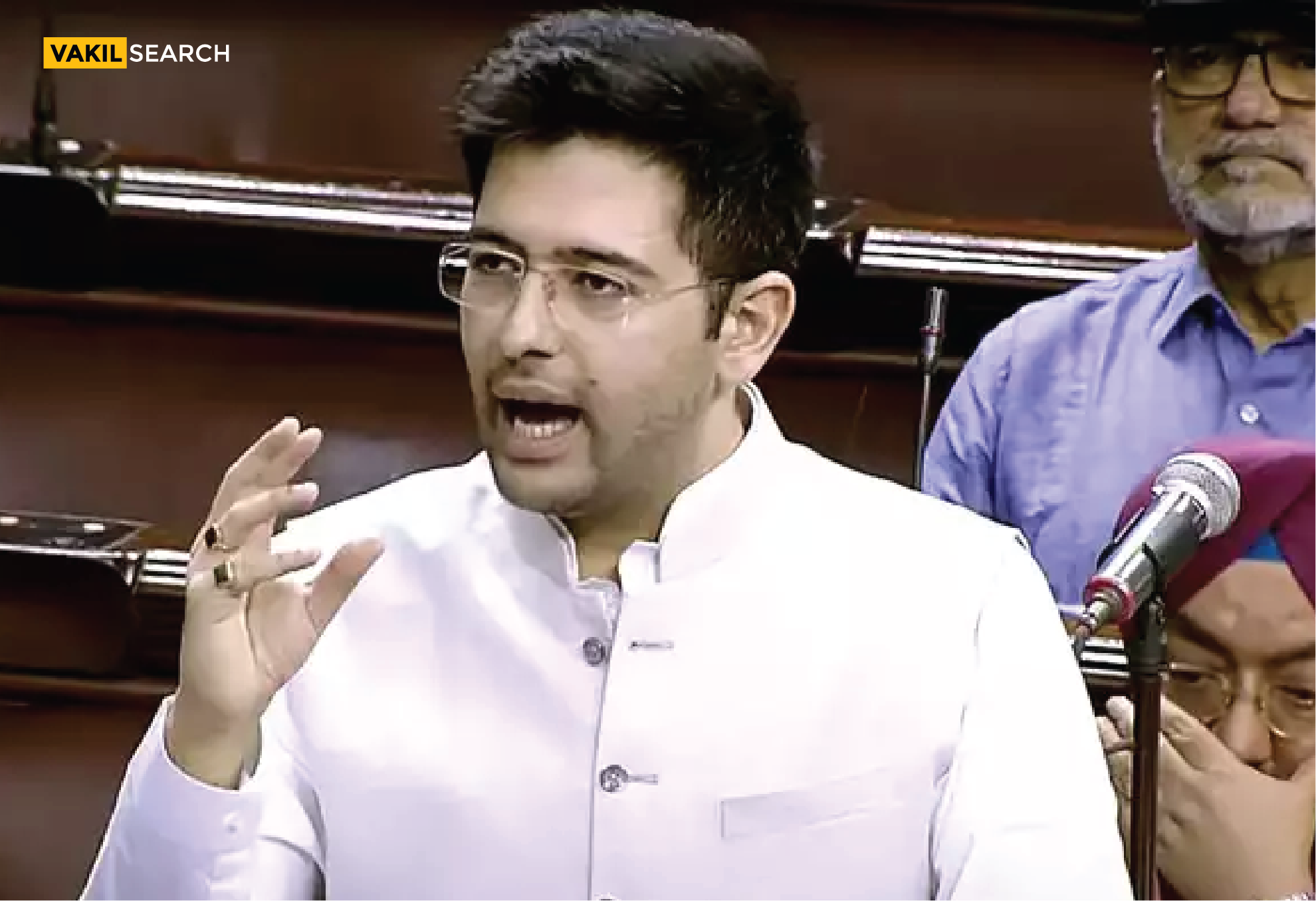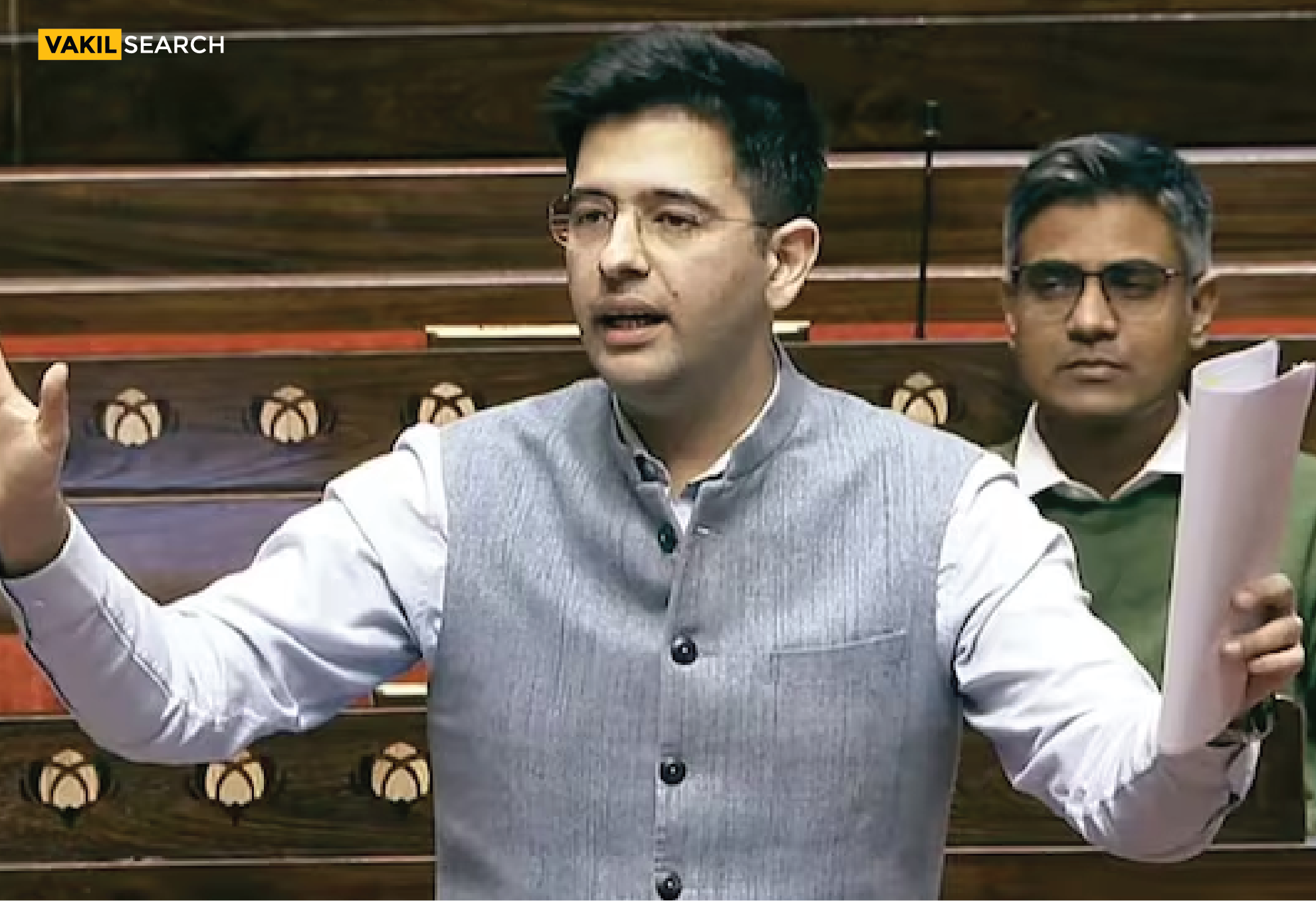During the discussion on the Finance Bill 2025 and The Appropriation (No. 3) Bill, 2025 in the Rajya Sabha on Thursday, MP Raghav Chadha presented a poignant account of the common man’s tax burden. Highlighting eight stages from birth to death, he illustrated how individuals remain trapped in a cycle of taxes throughout their lives. He called on the government to alleviate this burden, allowing people to have more disposable income and thereby stimulating economic progress.
Finance Bill 2025: Today, I Speak as a Common Man, Not as a CA
At the outset, MP Raghav Chadha remarked that the Finance Minister often counters his questions with personal comments—sometimes questioning his qualifications as a chartered accountant. He expressed his respect for her seniority but clarified that he was speaking not as a CA but as a common man, aiming to demonstrate how the government imposes taxes at every stage of life without adequately providing corresponding benefits.

Questioning the Return on Taxes
MP Chadha questioned the benefits citizens receive in exchange for their taxes, pointing out the lack of quality healthcare, infrastructure, affordable education, and safe public transport. He criticized the disparity between the taxes paid—comparable to those in developed nations—and the quality of public services received—more akin to those in underdeveloped regions.
Finance Bill 2025 Discussion: The Tax Burden from Birth to Death
MP Chadha detailed how taxes impact individuals at every life stage, referring to this system as a “Life Cycle Taxation Model.” He illustrated how taxation begins at birth—with GST on baby care products, vaccinations, and hospital room rents—and continues through childhood with taxes on baby food, diapers, toys, and even birthday celebrations.
During teenage years, the tax burden increases with GST on smartphones, internet services, entertainment subscriptions, and motorbikes. In the fourth stage—higher education—students face GST on tuition, hostel fees, educational materials, and even foreign remittances if studying abroad.
Entering the workforce, individuals encounter direct taxes such as TDS and income tax, as well as GST on daily expenses and investments. In middle age, as earnings peak, so does taxation—affecting income, vehicle purchases, fuel, homeownership, and even weddings.
Even retirement does not bring relief, as pensions, healthcare services, and life insurance premiums are taxed. After death, GST applies to obituaries, funeral necessities, and property transfers.

Are Heavy Taxes Beneficial?
MP Chadha questioned whether heavy taxation helps the economy or hinders it, noting that high taxes reduce disposable income, lower demand, and ultimately slow economic growth. He highlighted how even the poorest are affected, despite receiving free rations. He urged the government to reduce GST to increase purchasing power, thereby boosting consumption and economic activity.
In conclusion, Raghav Chadha advocated for tax reforms to ease the burden on the middle class and stimulate economic growth.
Conclusion:
MP Raghav Chadha’s speech in the Rajya Sabha poignantly emphasized the relentless tax burden on common citizens throughout their lives. He called for tax reforms to enhance disposable income, increase demand, and revitalize the economy. Choose Vakilsearch to Talk to a CA from the comfort of your house. We have senior expert CA who can help both individuals and companies to file their taxes on time.
- Finance Bill 2025 Discussion: Raghav Chadha Highlights the Heavy Tax Burden on Citizens - March 28, 2025
- Government Plans to Abolish 6% Equalisation Levy on Online Ads - March 25, 2025
- Trump World Center: First Trump-BrandedProject in Pune – India - March 20, 2025

